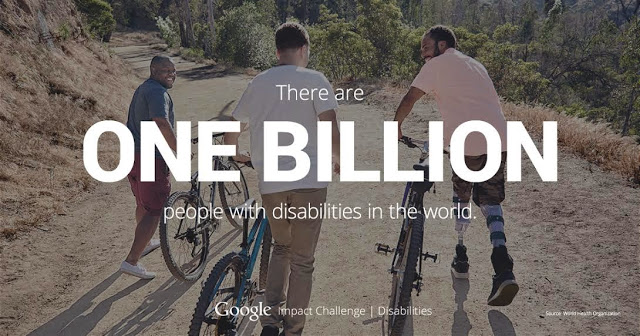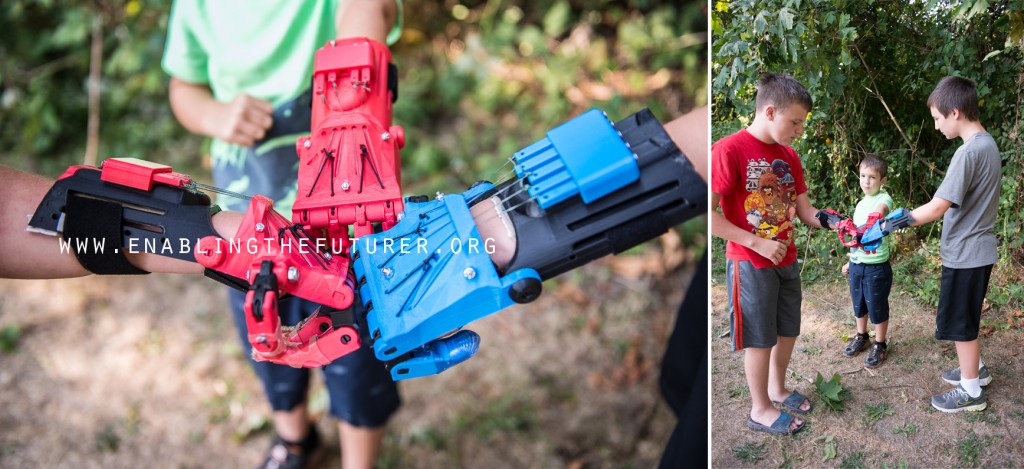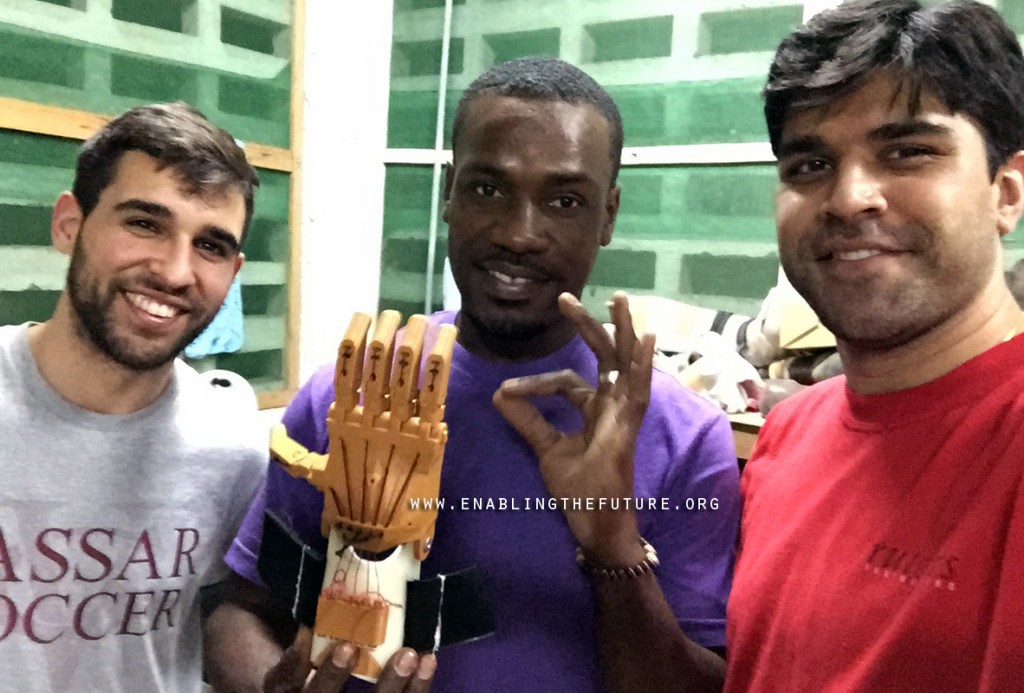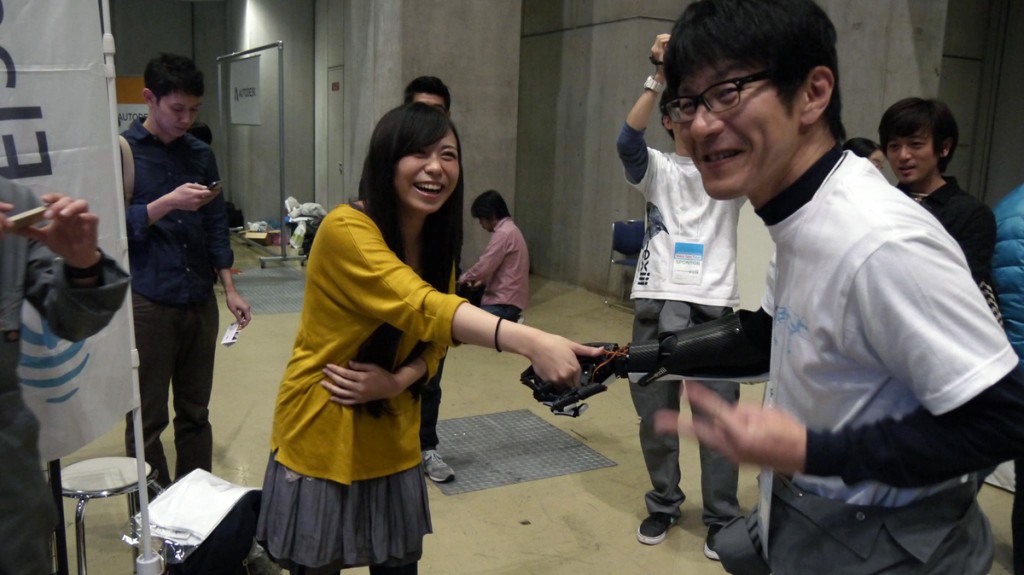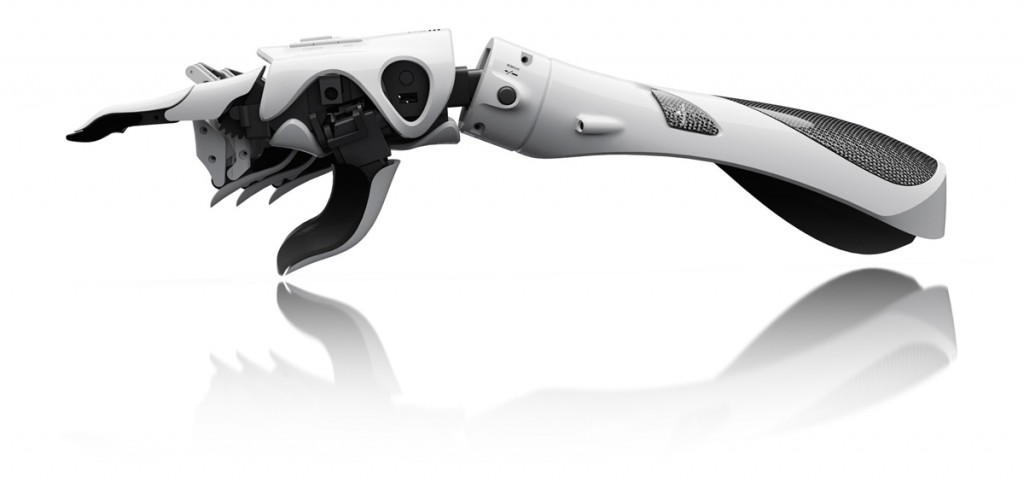3D printing non-profit e-NABLE has been lending a helping hand to an increasing number of people with disabilities in the form of 3D printed prosthetic hands. While e-NABLE works on their own brand of prosthetics, another group in Japan, exiii, is working on 3D printed bionic arms. Now, both organizations are receiving their own helping hands from one of the largest tech companies in the world. Through Google’s non-profit wing, Google.org, e-NABLE and exiii are received grants to aid in their missions to provide those in need with custom, 3D printed prosthetics.
The grant comes as part of the tech giant’s larger Google Impact Challenge, which is currently focusing on increasing the independence of the 1 billion people in the world with disabilities by providing a total of $20 million to a variety of disability-focused tech initiatives. Among the technologies being funded by the program, which range from tremor-stabilizing utensils for those with Parkinson’s to low-cost hearing diagnostic kits, are e-NABLE and exiii’s 3D printed prosthetics.
e-NABLE has received a $600,000 grant from Google, which the organization says will help them to speed up their R&D via new partnerships and design challenges, as well as to continue development of their free and open-source Handomatic design app, hosted on Youmagine. Jon Schull, president of the Enable Community Foundation, says of the grant, “We created the Enable Community Foundation to support the fast-growing community of volunteers now known around the world as ‘e-NABLE’. Google.org’s support will allow us to improve– and to prove–our products and our processes. We think the e-NABLE community’s products and practices are a potential model for other ventures that can inspire digital humanitarians to use emerging technologies to develop innovative solutions for underserved populations.” He continues, “Google.org has challenged us to test that idea, and given us the resources to do it, even as we continue to serve volunteers and recipients.”
Ivan Owen, Enable Community Foundation co-director and one of the original inventors of the low-cost prosthetic, adds, “Because we now have unprecedented access to knowledge, to technology, and to fellow problem-solvers, we have new options for developing, sharing, and disseminating new solutions to challenging intractable problems. The e-NABLE community has thrived by using communications and collaboration tools that are breathtakingly powerful, rapidly evolving and virtually free. With Google.org’s direct support, we can do even more.”
exiii has added electricity to the 3D printed prosthetic platform, developing a myoelectric, bionic arm. The arm is 3D printable, powered by one motor per finger, and wirelessly controlled via smartphone app. This reduces the price of a bionic prosthetic from $10,000~$40,000 all the way down to less than $300. As for exiii’s involvement in the Google Impact Challenge, details have yet to be released. I’ve reached out to the group behind the myoelectric, 3D printed arm and will update the article once I’ve heard back.
What has been released, however, is all of the design files for exiii’s HACKberry bionic arm. exiii announced the news on Facebook, “Today, we released the design data of HACKberry, our latest 3D-printed bionic hand, as open source for the purpose of speeding up the development through participation of cooperators from all over the world. In addition, we hope that cooperators will deliver this artificial arm to those we cannot reach ourselves due to distance and other constraints. Please join our community from the following link!”
exiii explains that their previous model, the handiii, was a sleek proof of concept to showcase their design and vision for the future. HACKberry, on the other hand, is meant to be a practical model made and developed through users in the open source community. The name stems from the hackberry tree, which “grow many branches”, as exiii hopes to do with their open source arms, as global users “‘hack’ at problems, grow branches of joy that reach out to users and enable their ideas and efforts to bear fruit (‘berries’).” Now, anyone can download the files for the HACKberry and build their own, customizing it and improving it in the same way that RepRap 3D printers have experienced their own open source evolution. The current capabilities of the HACKberry can be seen in the video below.
This is definitely awesome news for both e-NABLE and exiii, as well as those in need of low-cost prosthetics and the world as a whole. With funds from Google, these organizations will be able to significantly ramp up their work into these truly noble endeavors. What’s more is that these aren’t the only groups partnering with Google. Google.org has placed an open call for projects, so if you believe that your tech could significantly improve the world, you can head to the Google Impact Challenge page here.



